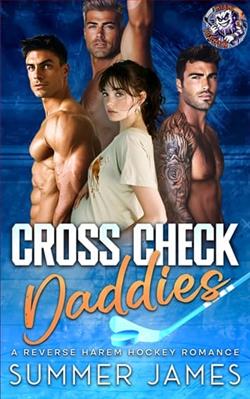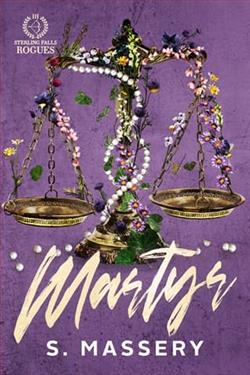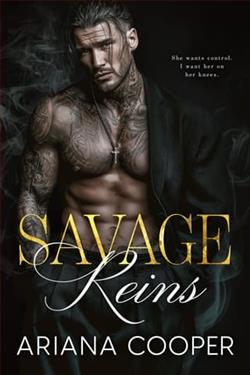Page 97 of How to Walk Away
“Where’syourman?” I asked.
“Which one?” she said, looking sly.
“The chubby-but-cute one,” I answered.
She looked a little offended on principle. A little protective even. “He’s on his way.”
We watched Ian line up the last boat and then turn toward us. I guessboat dragging must be hard work, because he took off his flannel shirt as he walked, wadding it up to wipe the back of his neck, and leaving only his white undershirt.
Kit let out a low whistle.
“Kit!” I said. “Don’t objectify him!”
“That’s not my fault,” she said, gesturing. “I can’t be held responsible for that.”
When Ian made it to us, he dropped the flannel shirt on the grass. His eyes were on me. “Want to show me the lake?”
“Yes,” I said, too quickly.
“Actually, she wants to take a nap,” Kit said.
I swatted Kit. “I do not!”
“I thought about the kayak,” Ian said, “but I’m worried about it tipping.”
I was worried about my neck, too. The water in this lake was certainly not as chlorinated as the therapy pool.
“The canoe’s fine,” I said.
“Can I come, too?” Kit asked.
“No,” we both said.
Ian carried me and my polka-dot parasol down to the water’s edge, and then I waited on the grass while he moved the painted canoe into the water. Then he lifted me again and sloshed into the lake, jeans and all, and set me carefully in the boat.
The canoe wobbled as Ian climbed in, and I felt a little jolt of fear. I hadn’t worn a life vest in this thing since I was a little kid, and this was the kind that wrapped around your neck like an airplane pillow. Of course, I couldn’t put anything around my neck—I was still wearing all my shirts with the shoulder cut out—so I just wrapped it awkwardly under my arms and snapped it tight.
“I look ridiculous,” I said.
Ian shook his head. “You look—” He stopped himself for a few attention-grabbing seconds before continuing on. “Resourceful.”
“I get that all the time,” I said, putting on my sunglasses, wondering what he’d been about to say.
It wasn’t the busy season yet at the lake. It felt like we had it all to ourselves.
“Where to?” Ian asked, and I pointed to the far side.
I was totally okay not talking. The paddle lapped the water, the canoe sloshed and slapped, the wind whispered. I remembered this place so well—it was so much a part of the fabric of who I was—that I could almost put myself here without being here.
But actually being here, out on the water, alive like this—just the fact of it was breathtaking.
I directed Ian to paddle past a hundred-year-old house, the first one built here, and I told him every ghost story I’d ever heard about it. Next, we passed the decade-old unfinished mansion that some hedge fund guy had started and then abandoned. “That one’s haunted, too,” I said. Later, we passed the spot where the sailboat races happened every July, and then the giant floating trampoline all the kids liked to row out to, and the little hamburger joint that had no parking at all for cars—only docks for boats.
I leaned closer to the water and let my fingers dangle in. I’d dangled my fingers in this very water in this very boat in weather just like this a thousand times. The houses were the same, the clouds were the same, and even the beach where I’d been supposed to get married was the same.
Through it all, Ian paddled a steady pace, and I let myself feel just exactly as happy as I was sad.
I marveled at the feeling, because it really wasn’t either-or. It was both, equally strong at the exact same time.















